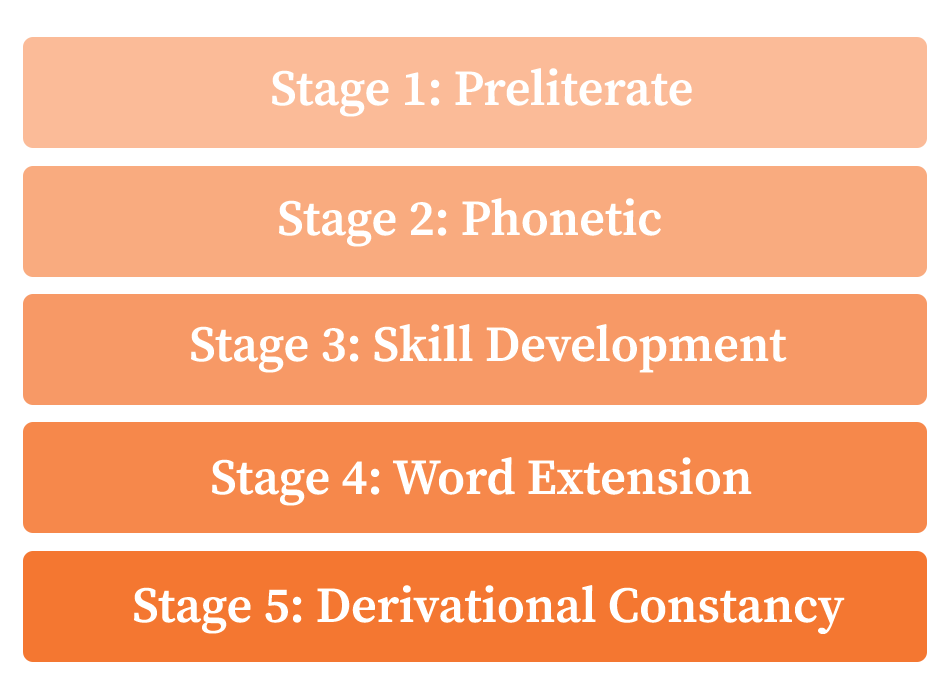Spelling You See is a natural, easy way to teach and learn spelling.
No spelling tests! No memorizing word lists! No daily time-consuming instructor preparations!
Spelling You See is a unique approach to spelling, powered by research on natural language development, focused on letter patterns, and designed around short, daily activities.
What Makes Spelling You See Distinctive?
Research Based
Visual Memory
Daily Activities
Skills-Based Placement
Getting Started with Spelling You See
We offer seven levels, starting with one for beginning readers who are learning letter names and sounds.
Each level builds sequentially on the previous one and supports students moving through the developmental stages of learning to spell.

Philosophy

The Five Developmental Stages of Spelling
Research indicates that all students move through the same sequence of stages as they are learning to spell. Stages can’t be skipped or sped up, but the pace at which children move through the stages is unique to each child.
Understanding how children learn to spell and using a program based on research and developmentally-appropriate practices can help guide students to become competent, confident spellers.

